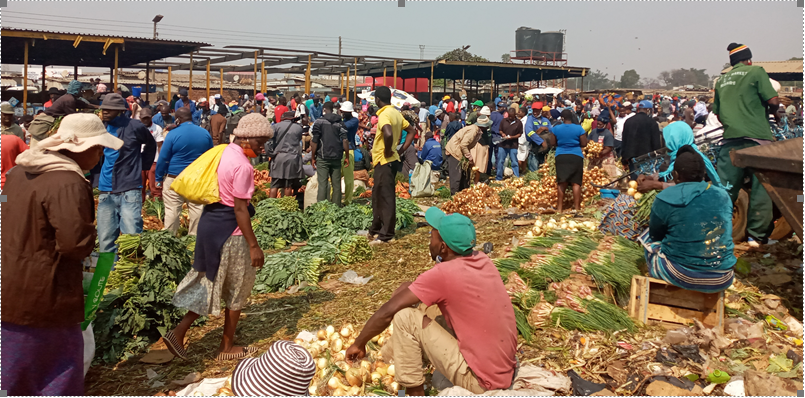By Charles Dhewa
While mobile phones and related technologies are being touted solutions to the absence of agricultural data in developing countries, such technologies are just tools not knowledge. Tools by themselves will not provide strategic solutions without knowledge. In fact, in the wrong hands, the tools may increase socio-economic inequalities in ways that further marginalize local knowledge that has been sustaining resilient food systems for decades.
Practical wisdom is more important than literature
There are many reasons why more than 90% of active participants in African agriculture such as farmers, traders, and transporters do not depend on conventional literature. Instead, these actors rely on their practical wisdom generated from undocumented and fluid daily practices. Literature has also proven not very useful among college or university graduates who only use literature to pass examinations. Once studies are completed graduates find themselves redundant in environments where literature is irrelevant.
The situation would be better if the formal education systems ensured tools used to collect data do not remain too academic. Unfortunately, avenues for extending such tools to the grassroots have not been cultivated. For instance, tools used to periodically collect data on crop and livestock assessments have remained too prescriptive. Such tools are designed to capture quantitative data as opposed to qualitative data which is more fluid and dynamic in order to represent realities on the ground. Where demographic data is collected using such tools, the data are not creatively analyzed as an integral part of the findings.
Digital technology versus complex food systems
African agriculture has seen an increase in mobile applications being pushed as part of development interventions. However such mobile applications house the same content that can be found in government extension departments, books, and manuals. Nothing new. In addition, due to in-built technological biases, fluid information and knowledge within food systems are not finding its way into the mobile applications.
The agriculture sector is not only becoming knowledge-intensive but also data-heavy. By generating their own content daily, millions of individual farmers and traders are now functioning like institutions that capture and process fluid information. This is contrary to traditional practices where information would be sent to government institutions or media houses for analysis and processing before being shared. Information and knowledge is being captured fluidly as traders and farmers do their work and engage with the market in real-time. Extension agents are being challenged to cascade such complex knowledge.
Where digital technology may be slightly succeeding in handling individual supply chains that are easy to manipulate, the story is still different with complex food systems in most African communities. Where corporate food systems may focus on less than five agricultural commodities, African food systems and integrated markets handle more than 100 different commodities from diverse production zones and seasonal characteristics. The complexity of these food systems is inherent across value chain nodes, multiple roles and destinations as well as numerous interdependencies between commodities and information flows.
Pitfalls of fragmentation
The fragmented location of farmers and production zones also worsens the complexity in the movement and tracking of commodities going to different markets and consumption zones. Each step along which food travels is associated with multiple ownerships and decisions around commodities. This kind of fragmentation makes it difficult for mobile applications to mimic real scenarios. As in other mass markets in Africa, the diversity of commodities flowing into the Mbare market in Harare and Aishaman in Accra translates to thousands of possible outcomes daily. For example, the Mbare market has more than 200-grain varieties handled by more than 600 different traders who specialize in grains. Not to mention more than 70 vegetable varieties coming from diverse zones as and when in season. These commodities are also brought to the market by different modes of transport including long-distance buses and hired trucks.
Production factors like unpredictable yields and surplus for the market further fuel uncertainties that may not be easily captured and communicated through a mobile application. In the case of potatoes, for example, analysis has shown diverse crop yields from more than 15 varieties. Such agronomic scenarios linked to yield per hectare by variety are relevant for production planning, designing market calendars, and forecasting demand patterns. Such important details are missing in mobile applications.
More significantly, in much of Africa, field-to-market value chains are still handled by organizational silos with limited coordination and real-time data exchange. The private sector is not being very transparent with its data for competitive advantage reasons while departments with one agricultural ministry may prefer functioning as silos instead of sharing information in real-time. This makes it difficult for agricultural value chains to function as a single integrated process that reveals a comprehensive view of the entire agriculture sector’s performance. Ideally, early warnings have to be shared in real-time unlike waiting for vulnerability assessments. Smart data collection should reveal nutrition gaps ahead of time.
[email protected] / [email protected] / [email protected]
Website: www.emkambo.co.zw / www.knowledgetransafrica.com
Mobile: 0772 137 717/ 0774 430 309/ 0712 737 430






